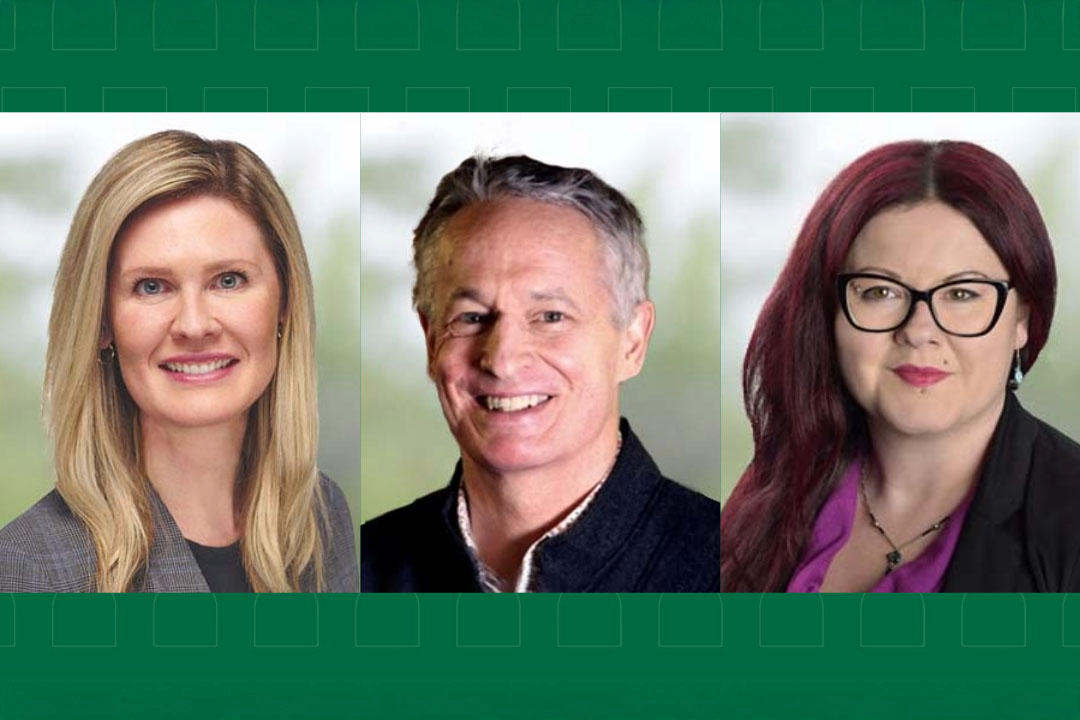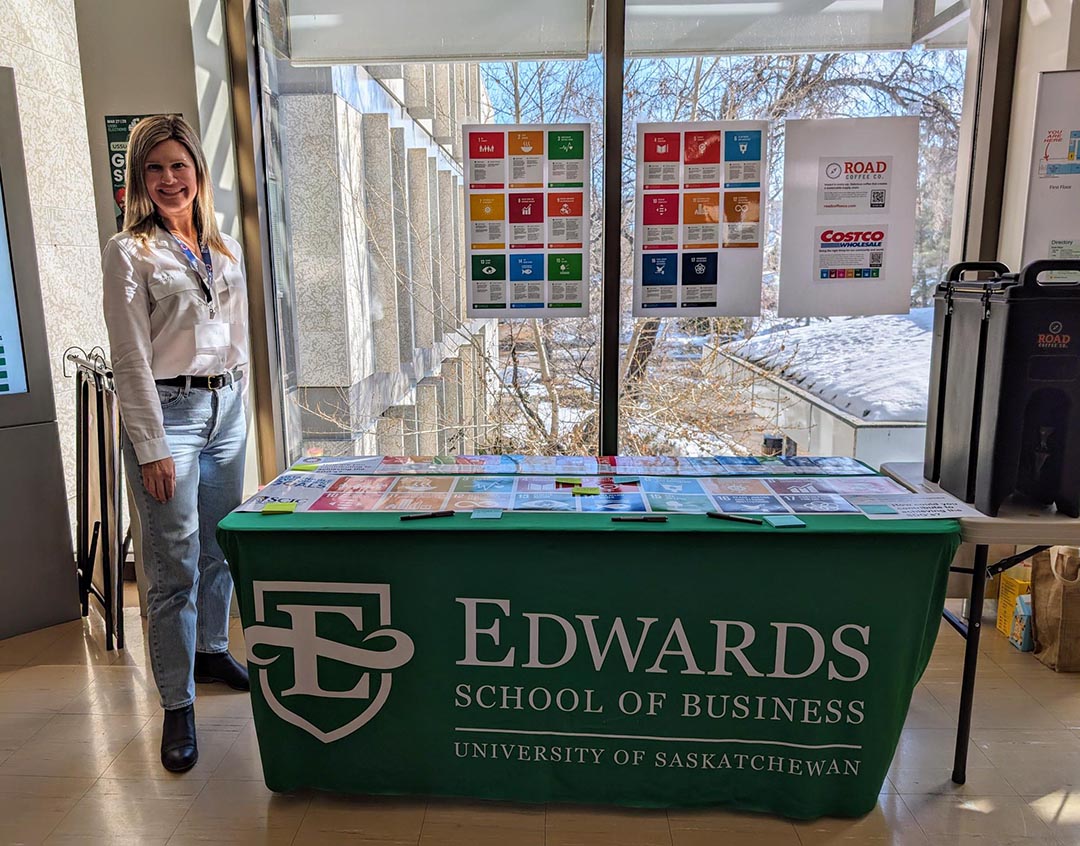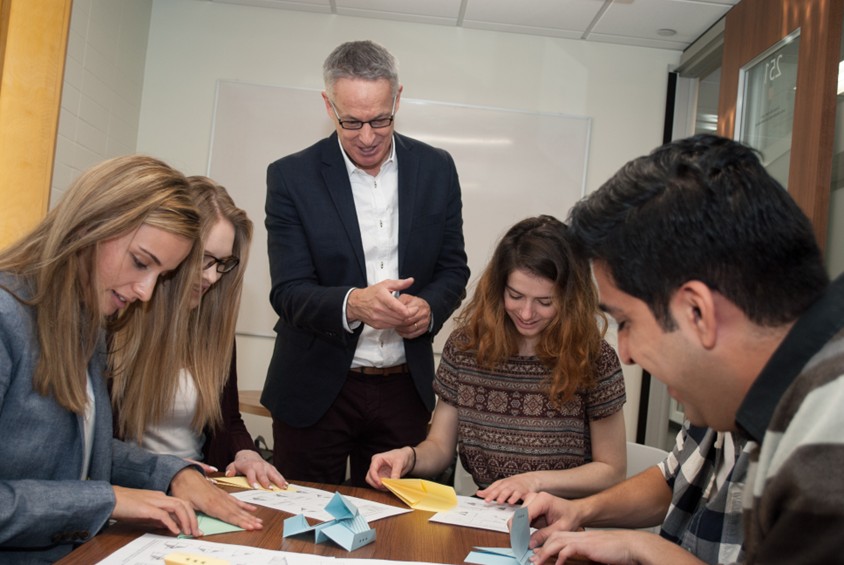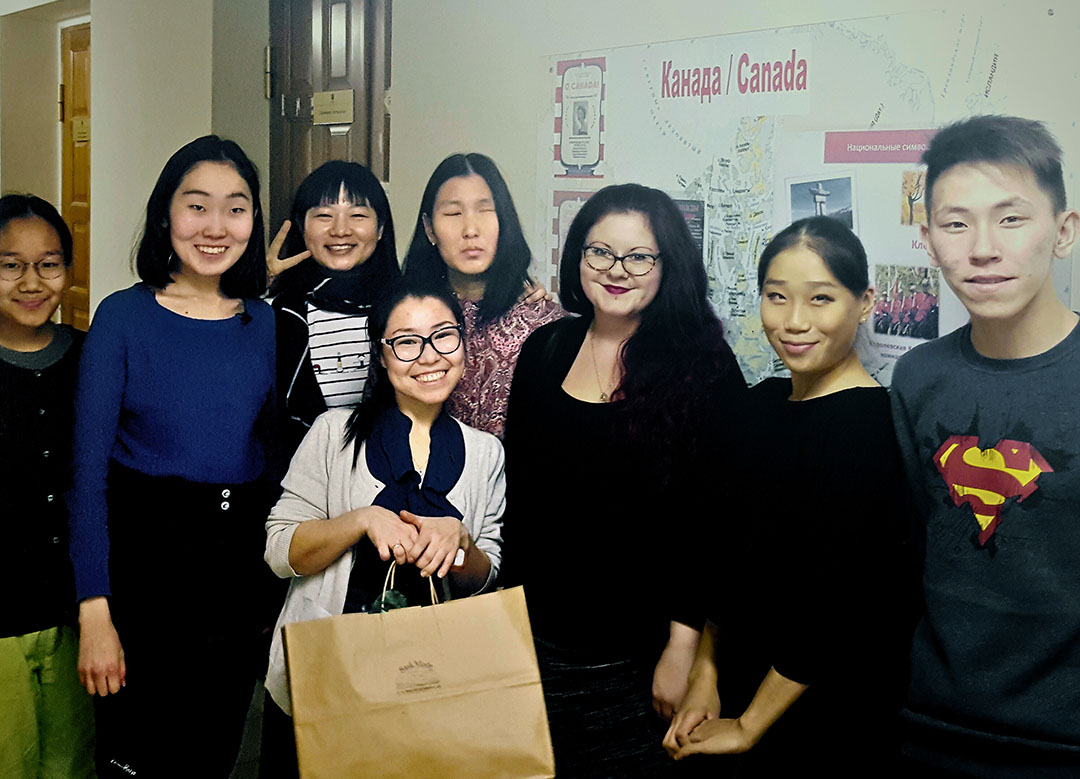
Edwards School faculty shaping tomorrow through USask Sustainability Fellowship
At the University of Saskatchewan (USask), sustainability is more than a concept. As we celebrate Campus Sustainability Month, it’s a timely reminder of the values we uphold. The Edwards School of Business (Edwards), a proud signatory to the Principles for Responsible Management Education (PRME), continues to align its mission, vision and values with the goal of preparing socially conscious professionals and creating knowledge for sustainable business and communities.
By Natasha KatchukThree faculty members from Edwards have held a USask Sustainability Faculty Fellowship since the program began in 2022. They are part of a campus-wide initiative to integrate sustainability into teaching, research and community engagement. The fellowship supports faculty to design, instruct and assess in ways that build student competencies for sustainability, with a focus on the United Nations Sustainable Development Goals (SDGs).
Brooke Klassen was the first to hold the sustainability fellowship, serving from 2022 to 2024. Dr. Norman Sheehan (PhD) is serving in the role for 2024 to 2026, and Dr. Joelena Leader (PhD) is the most recent Edwards faculty member to join the program, appointed for the 2025 to 2027 term.
Each sustainability fellow brings a unique perspective to the role, united by a shared goal of building a more resilient and responsible future. Below, they share their views on sustainability, their goals for the fellowship and how they are applying these values in business education at the Edwards School of Business and beyond.
Brooke Klassen, Associate Professor (AP), Department of Management & Marketing: 2022-2024

Focus:
Brooke Klassen integrated sustainability into her teaching by emphasizing both responsible production and mindful consumption. She encouraged students to become socially conscious professionals, demonstrating that capitalism and sustainability are not opposing forces but can work together to build stronger, more resilient organizations. Using the UNESCO Reflect–Share–Act model, she guided students in critically examining global issues, sharing innovative solutions, and taking meaningful action within their workplaces, social circles, and communities.
Insight:
Klassen embedded sustainability throughout her courses by aligning learning outcomes, activities and assessments with the United Nations SDGs. In MBA 803: Business Strategy and Societal Impact, she introduced real-world examples - such as global water security - to spark discussion and personal reflection. She recognized that students often grappled with uncertainty, questioning the feasibility of the SDGs, their own capacity to make a difference, and the role of business in addressing global challenges. Klassen viewed this as an opportunity to build confidence, aiming to show students they could lead and contribute to profitable businesses that also prioritized long-term sustainability and ethical responsibility.
Goals for the Fellowship:
- Redesign a core undergraduate business course to embed sustainability competencies aligned with the United Nations SDGs.
- Empower students through reflective learning by integrating real-world challenges that build confidence in their ability to drive change.
- Lead faculty engagement in relation to sustainable teaching and learning and open educational practices.
Dr. Norman Sheehan (PhD), Professor, Department of Accounting: 2024-2026

Focus:
Dr. Norman Sheehan brings a strategic lens to sustainability education, embedding it into core business concepts such as performance measurement, risk management and governance. In his undergraduate accounting course, Performance Measurement, Controls and Risk Management, he expands traditional frameworks like the balanced scorecard to include sustainability disclosure standards, linking them to the United Nations SDGs. Drawing on his background in accounting, Sheehan emphasizes that only when you measure something can it be managed and improved. He also emphasizes environmental and societal risks to firms alongside the conventional business risks they face, helping students understand the broader implications of decision-making in today's business environment.
In his MPAcc graduate course, Strategy and Governance, Sheehan reinforces the importance of values-driven leadership and responsible management. He builds on the foundation laid by inaugural fellow Brooke Klassen, who helped shape Edwards' updated mission and vision. The school now aims to enable learners to become socially conscious professionals and to create knowledge for sustainable business and communities. Sheehan's work supports these principles and prepares students to lead in a future where sustainability is central to every organization’s strategy and governance.
Insight:
Sheehan believes students must be introduced to sustainability during their academic journey because, for many, it is the only place they will learn about it in a structured way. He sees it as essential to help students move beyond a profit-only mindset and understand the broader implications of the social and environmental issues shaping the future of business. He introduces students to sustainability disclosure standards and connects them to the organization’s strategic aims, helping students understand why organizations need to consider issues such as gender equality, racial equity, biodiversity, modern slavery, reconciliation and greenhouse gas emissions.
Sheehan also highlights the importance of giving students practical tools. With the recent approval of the Canadian Sustainability Disclosure Standards, he sees a major opportunity for accounting students to enter a growing field in the CPA profession. As firms begin to measure and audit companies’ sustainability claims, students trained in these standards will be well-positioned to lead. He notes that student feedback has been overwhelmingly positive, with learners eager to go deeper into sustainability topics, even when they are not yet part of their professional exams. For Sheehan, this enthusiasm confirms the importance of preparing students to manage and verify sustainability performance in a rapidly changing business landscape.
Goals for the Fellowship:
- Strengthen connections across campus by engaging with the broader university sustainability network.
- Reflect on and refine teaching practices to better align with sustainability principles and student needs.
- Respond to student interest by deepening course content related to sustainability, even beyond current exam requirements.
- Contribute to a culture of sustainability at USask that prepares students to lead with purpose and responsibility.
Dr. Joelena Leader (PhD), Assistant Professor, Department of Management & Marketing and Managing Director, BRIDGE Knowledge Centre: 2025-2027

Focus:
Dr. Joelena Leader sees sustainability in teaching and learning as a process of fostering critical, inclusive and reflexive inquiry. In her graduate qualitative research methods course, she emphasizes community-based approaches, ethical engagement and the co-production of knowledge. By integrating sustainability as both content and process, she encourages students to explore diverse worldviews, question dominant systems and design research that contributes to just, resilient futures through the lens of the United Nations SDGs. For Dr. Leader, teaching sustainability is not only about what students study — it is about how they learn, who they learn with and the purpose behind it all.
Insight:
To embed these values in her teaching, Dr. Leader is redesigning her graduate qualitative research methods course to centre sustainability through the SDG framework. Her approach includes experiential and community-engaged learning, case studies focused on environmental and social justice, and assignments that challenge students to design research with real-world impact. She incorporates diverse epistemologies, including Indigenous and place-based approaches, to help students critically examine positionality, power and dominant narratives in knowledge production. Through collaborative learning, ethical research design and critical discussion, students engage deeply with sustainability as both a research focus and a way of thinking and acting in the world.
Goals for the Fellowship:
- Integrate sustainability competencies (systems thinking, futures thinking, and problem solving) across course activities.
- Build reflexive and ethical awareness through structured reflection (e.g., positionality statements, journaling, peer feedback, scaffolded reflections) that connect sustainability principles to personal values and research goals.
- Support students in evaluating how methodological choices affect communities and ecosystems, strengthening awareness of real-world implications.
- Engage colleagues through the BRIDGE Knowledge Centre by sharing teaching innovations, co-hosting workshops, and fostering interdisciplinary collaboration.
Shaping the next generations of business professionals
The work being done at the Edwards School of Business reflects a long-term commitment to embedding sustainability into business education in meaningful and lasting ways. Edwards is the only unit at USask to have had three faculty members serve as Sustainability Faculty Fellows since the program began, demonstrating a deep and sustained engagement with the university’s sustainability goals.
Faculty members such as Klassen, Sheehan, Leader and others have played key roles in shaping curriculum, research and engagement that prepare students to think critically and act responsibly. Their efforts are supported by strong leadership across the school.
This progress has been supported by strong leadership across the Edwards School of Business. Dr. Maureen Bourassa (PhD), Associate Dean, Academic, exemplifies this commitment. Her collaborative approach and strategic vision have helped position sustainability as a core element of the Edwards’ student experience. As she puts it, “Sustainability is not a side project. It is central to how we prepare students to meet the challenges of the future.”
With engaged faculty, institutional support and a clear sense of purpose, Edwards is helping shape a generation of business professionals ready to lead with integrity and build a more sustainable world.

